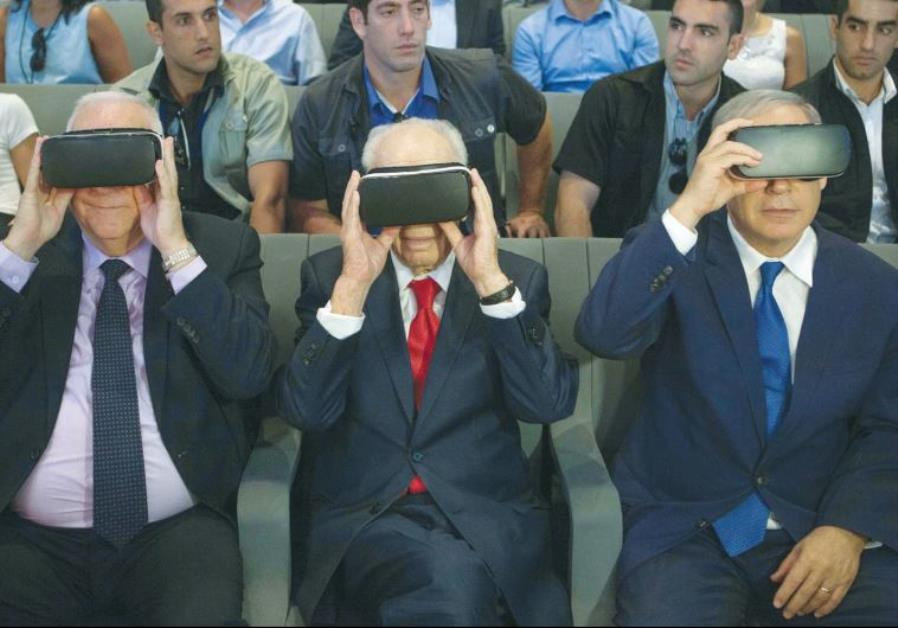Diplomacy 2019: ‘Pop-up’ embassies, virtual reality, major bicycle races

PRESIDENT REUVEN RIVLIN, former president Shimon Peres, and Prime Minister Benjamin Netanyahu don virtual reality goggles at the Peres Center for Peace and Innovation in Jaffa. (photo credit: REUTERS)
Join Jerusalem Post Premium Plus now for just $5 and upgrade your experience with an ads-free website and exclusive content. Click here>>






Comments are closed.